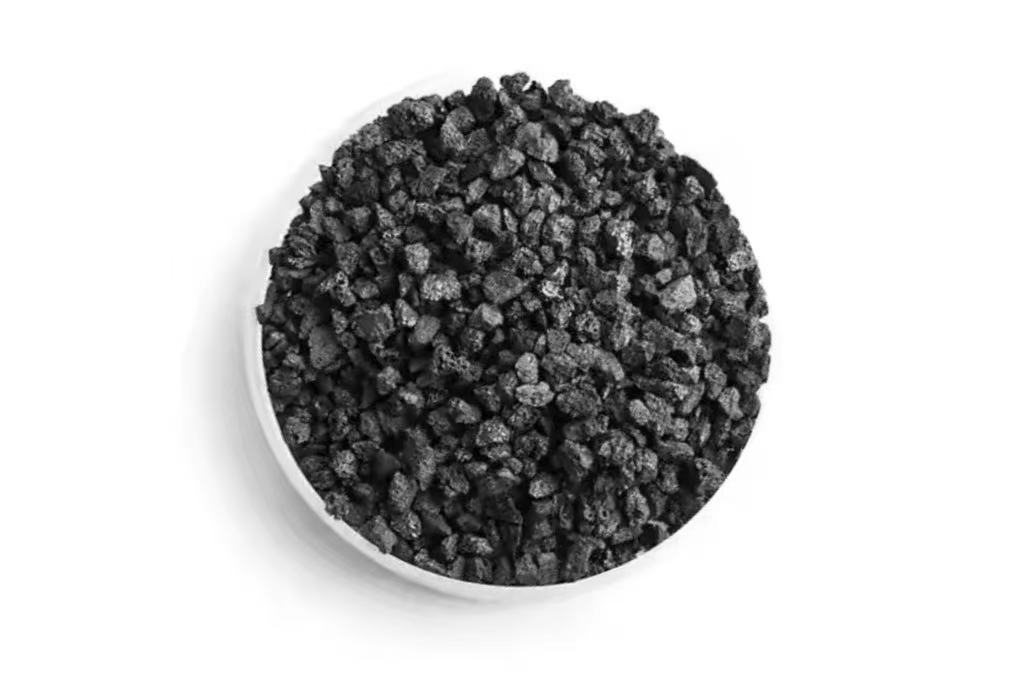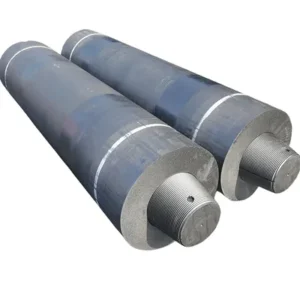In the modern industrial system, petroleum coke is a by-product of petroleum refining and plays a key role. With its unique physical and chemical properties, it is integrated into a number of key industries such as energy, metallurgy, chemical industry, and new energy. And it has a wide range of uses, which not only supports the efficient operation of existing industries. But also builds a solid material foundation for future technological innovation and industrial upgrading.
Table of Contents
Toggle
What petroleum coke?
Petroleum coke is a solid substance which is transformed into heavy and heavy oil by distillation and then hot cracking. From the appearance, it appears as black or dark gray blocky or granular, with a metallic luster.
Characteristics of petroleum coke
High carbon content:
Its carbon content is usually as high as 80%-95%, which makes it have a high calorific value and can release a lot of energy.
Low ash content:
The ash content of high-quality petroleum coke is low, generally between 0.1% and 1%. This makes it have obvious advantages in application scenarios with high impurity requirements.
Good electrical conductivity:
The carbon atom arrangement structure inside it gives it a certain electrical conductivity, which lays the foundation for its application in electrical related fields.
High temperature resistance:
Under high temperature environment, it can maintain relatively stable physical and chemical properties. And it is not easy to melt or decompose.
Impact of characteristics on its use
These characteristics are closely related to its wide use. The high carbon content and low ash content make it a high-quality fuel that can be burned efficiently to release energy. While reducing the adverse effects of impurities during combustion. The good electrical conductivity and high temperature resistance make it play a role in the metallurgical and electrical industry. To meet the needs of special environments.
Uses of petroleum coke in the fuel field
Power generation industry
It is an important fuel in the field of power generation. Its high carbon and high calorific value releases a lot of heat energy during combustion, heating water to produce steam to drive steam turbines to generate electricity. Compared with coal, petroleum coke burns less pollutants and has less pressure on environmental protection. Some large oil-fired power plants mix it with other fuels to optimize combustion efficiency, reduce costs. And provide a more efficient and clean energy option for the electricity supply.
Industrial boiler
Many enterprises rely on industrial boilers for heating, and it has become an ideal fuel due to its high calorific value and stable combustion performance. Paper, chemical, food processing and other industries commonly use it to burn in industrial boilers. To provide steam and heat required for production. Stable combustion characteristics make industrial boilers run more reliably, effectively improve production efficiency, and ensure stable production in various industries.
Petroleum coke uses in metallurgical Industry
Aluminum electrolysis
Aluminum electrolysis uses alumina as raw material for electrolytic aluminum, and petroleum coke as anode material is crucial. Under high temperature and strong current, it reacts with alumina to form metals aluminum and carbon dioxide. It can enhance the conductivity and stability of the anode, reduce the anode consumption, reduce the production cost of aluminum. And it improves the production quality of aluminum, which is the key material in the aluminum smelting process.
Steelmaking
In steelmaking, you can mainly use it to provide carbon sources. In converter steelmaking, in order to adjust the carbon content of liquid steel, it is necessary to add carbon. And it is an ideal carburizer with high carbon and less impurities, which will not affect the quality of steel. By accurately controlling the amount of addition, it can effectively adjust the chemical composition of steel. To meet the production requirements of different steels, and help the steel industry to produce diversified products.
Uses of petroleum coke in the production of carbon products
Manufacture of graphite electrodes
Graphite electrode is the key consumable for electric furnace steelmaking and aluminum smelting, with petroleum coke as the main raw material. Through the complex process of calcination and kneading, it is transformed into graphite electrode with high conductivity, high strength and high temperature resistance. When the electric furnace steelmaking, it introduces an electric current. To melt the scrap steel at high temperature in the furnace, greatly improving the steelmaking efficiency.
Production of silicon carbide
In production, you can use petroleum coke as carbon source and reacts with quartz sand in high temperature electric furnace to produce silicon carbide. Its purity and particle size affect product quality. Control raw materials and processes, you can produce high-quality products, used in abrasive and other fields.
Production of electrode paste
Electrode paste is used to conduct electricity in mineral furnace, and petroleum coke is one of the main raw materials. Mix it with the binder such as coal pitch according to proportion, and heat and knead the mixture, then you can produce the electrode paste. At the high temperature of the ore furnace, you can burn it to form a conductive electrode with high mechanical strength. It stably supplies power to the reaction in the furnace.
Production of brushes
You can use specially treated petroleum coke to manufacture brushes. Its electrical conductivity and wear resistance can make the brush work stably when the motor is rotating at high speed. And reduce wear and sparks, reduce losses, and improve the motor performance.
Negative electrode materials for new energy
You can use the deeply processed petroleum coke as the anode material of lithium battery. It has lower cost and higher specific capacity than the traditional graphite anode. Its modification and optimization can improve the electrochemical performance and meet the high requirements of energy density and cycle life of lithium batteries.
Other applications of petroleum coke
Preparation of activated carbon
Petroleum coke is the raw material for the preparation of activated carbon. It can be converted into activated carbon with well-developed pores and large specific surface area by physical or chemical activation. It has strong adsorption and is often used for water treatment, air purification and food decolorization. In drinking water treatment, petroleum coke based activated carbon can remove odor, pigment and organic pollutants and improve water quality.
Foundry industry
When casting, you can use it as carbon raiser and heating agent. Due to its high carbon content, it adjust the carbon content of castings. During combustion, it releases a lot of heat, which can increase the temperature of liquid metal, promote its flow and filling. Thus improving the quality of casting and ensuring the smooth casting process.
Adsorbent
After special treatment, the pore and surface properties change and have adsorption. It can absorb heavy metal ions in wastewater, organic pollutants, and harmful gases in waste gas. In the treatment of industrial wastewater, petroleum coke adsorbents can reduce the concentration of pollutants. And it helps wastewater discharge to meet the standards.
Catalyst
You can use petroleum coke as catalyst carrier, loaded with active components for catalytic reaction. It has good chemical stability and mechanical strength, can firmly support the active component, improve catalyst activity and selectivity. And it plays a key role in petrochemical, organic synthesis and other reactions.
Reactant
In some chemical reactions, you can use it as a reaction agent to participate in them. Such as in the production of calcium carbide, which reacts with lime at high temperature to produce calcium carbide. Its reactivity and carbon content directly affect the production efficiency and quality of calcium carbide. It is an important raw material for calcium carbide production.
Conclusion
Petroleum coke is a multi-functional industrial raw material, which is widely used in fuel, metallurgy, chemical industry and other fields with its unique characteristics. As technology advances, its application areas will expand and its performance will be optimized. In the future, under the requirements of environmental protection and resource utilization, it will pay more attention to green and efficient. And help industrial transformation and sustainable development.


